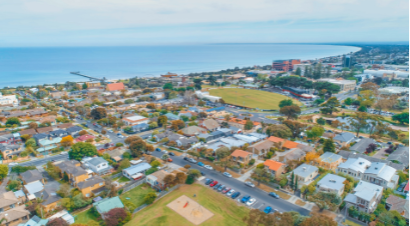Homebuyers' Guide to Low Deposit Home Loans in Melbourne
Melbourne’s property market in 2024 has been active, with house prices remaining a key concern for many, especially for first-time buyers.
But here’s the good news: low deposit home loans, which allow you to buy a home with a smaller deposit, can make owning a home in Melbourne possible sooner than you think. And with the expertise of a
skilled mortgage broker, you can find the right loan tailored to your financial situation, making the entire process smoother and more manageable.
In this guide, we'll cover everything you need to know about low deposit home loans, including deposit requirements, government schemes, and Lenders Mortgage Insurance (LMI). Plus, we’ll share a case study to show how it all works in real life.
🏡 Need Home Loan help?
We've helped thousands of locals.
Just call us on 0423 713 362
Or visit our main website
What is a Low Deposit Home Loan?
So, what exactly is a low deposit home loan? Simply put, it’s a type of loan that allows you to purchase a home with a smaller deposit than what’s typically required.
Standard home loans often ask for a 20% deposit. However, with low deposit loans, you could be looking at putting down as little as 5%, or even less in some cases.
Why Choose a Low Deposit Loan?
Opting for a low deposit loan can be a strategic move, especially if property prices in Melbourne continue to rise. Getting into the market sooner with a smaller deposit can save you money in the long term, even if it means paying the Lenders Mortgage Insurance (LMI).
Before diving into the process of applying for a low deposit home loan, it’s worth understanding the key advantages these schemes offer. Below, we outline the main benefits that can make a significant difference in your home buying journey.
Benefits of Low Deposit Home Loan Schemes:
- Get Into the Market Sooner: With a smaller deposit, you can purchase your home earlier, potentially benefiting from rising property prices.
- Access to Government Support: Many schemes offer government-backed guarantees, which can reduce or eliminate the need for Lenders Mortgage Insurance (LMI), saving you thousands.
- Lower Initial Outlay: Reduced deposit requirements mean you need less upfront cash, leaving more funds available for other expenses like stamp duty or home improvements.
- First Home Buyer Assistance: Schemes like the First Home Guarantee provide specific benefits to eligible first-time buyers, making it easier to achieve home ownership.
- Flexible Options: Some schemes offer flexibility in repayment terms or the ability to combine with other financial assistance programs, helping tailor the loan to your needs.
- Increased Borrowing Power: With government backing, some schemes might allow you to borrow more than you could with a standard loan, giving you access to a broader range of properties.
- Potential for Better Loan Terms: By meeting specific criteria, you might qualify for lower interest rates or reduced fees, enhancing the affordability of your loan.
Eligibility Criteria for Low Deposit Home Loans
If you're considering a low deposit home loan in Melbourne, it's crucial to know what lenders will be looking for in your application. Below, we’ve outlined the key eligibility criteria specific to the Melbourne market that you’ll need to meet.
- Minimum Deposit: Most lenders in Melbourne require a deposit of at least 5%, though some might prefer a higher amount depending on your credit history.
- Credit Score and History: A good credit score is essential. Lenders will closely review your credit file to ensure you have a strong repayment history, with minimal defaults or late payments.
- Stable Income: You must demonstrate a stable income, usually through consistent employment for at least six months. Self-employed applicants will need to provide tax returns and financial statements.
- Borrowing Power: Lenders assess your borrowing capacity based on your income, living expenses, and any other existing debts, such as credit cards or personal loans.
- Australian Citizenship or Residency: To qualify for most low deposit loans in Melbourne, you must be an Australian citizen or permanent resident.
- Property Price Caps: Some government-backed schemes in Melbourne have property price caps, often around $800,000, so your chosen property must fall within these limits.
- Government Scheme Eligibility: If you're applying for assistance through programs like the First Home Guarantee, you’ll need to meet specific income limits and other criteria set by the scheme.
- Additional Security: In some cases, lenders may require additional security, such as a guarantor or equity in another property, especially if the loan is considered high-risk.
- Location Requirements: The property you intend to buy must be within the Melbourne metro area or specified regional zones to qualify for certain low deposit loans.
Types of Low Deposit Home Loans Available in Melbourne
When considering a low deposit home loan in Melbourne, it’s important to understand the variety of options available to you.
First Home Guarantee
This government-backed first home guarantee scheme allows eligible first-time buyers to purchase a home with as little as a 5% deposit without paying LMI. The Australian government guarantees the difference, making it a popular choice for Melburnians looking to enter the market.
Family Home Guarantee
Specifically designed for single parents, this family home guarantee scheme requires just a 2% deposit. The government covers the LMI, helping single parents achieve home ownership even if they have limited savings. This option is available for both first-time buyers and previous homeowners who no longer own property.
Lender-Specific Low Deposit Products
Several banks and lenders in Melbourne offer their own low deposit home loans, often requiring as little as a 5% deposit. These products typically come with LMI costs, but some lenders may waive fees or offer special rate home loan packages to make the deal more attractive.
Key Worker Home Loan Schemes
Melbourne has a range of special loan schemes available for key workers such as home loans for nurses, teachers, and emergency service personnel. These schemes often feature reduced deposit requirements, lower interest rates, or waived LMI to support those in essential roles.
Guarantor Home Loans
If you’re struggling to meet the deposit requirements, a guarantor home loan might be an option. With this type of loan, a close family member can use their property as additional security, allowing you to borrow more with a smaller deposit.
Shared Equity Schemes
Some lenders offer shared equity home loans, where you can partner with a government, such as the Homebuyer Fund or a private entity, to buy a home. You purchase a share of the property (typically 70%–80%), while the other party owns the remaining share. This reduces your deposit and monthly repayments.
Graduate Home Loans
Certain lenders offer low deposit loans specifically for recent graduates. These products acknowledge your future earning potential and may require a deposit as low as 5%, with competitive interest rates and reduced fees.
House and Land Package Loans
For those looking to build, some Melbourne lenders provide low deposit loans specifically tailored for house and land packages. These loans often require a minimum deposit of 5%, and can be structured to fund the construction in stages.
Case Study: Georgia’s Journey to Her First Home in Melbourne
To bring this guide to life, let’s look at a real-life example. Georgia, a 28-year-old nurse, had been renting in Melbourne for years. With property prices on the rise, she decided it was time to buy her first home. But with only $35,000 saved, she was well short of the typical 20% deposit for a $600,000 property.
Georgia’s Plan
After speaking with a mortgage broker, Georgia discovered that she could apply for a low deposit home loan with just a 5% deposit. This meant she only needed $30,000, leaving her with enough to cover additional costs like the application fee and stamp duty, thanks to some strategic planning and budgeting.
The Loan Application Process
Georgia’s loan application was straightforward, but it involved several steps:
1. Pre-Approval: First, Georgia got pre-approval from a lender, which gave her a clear idea of her borrowing capacity and the loan amount she could secure.
2. Finding a Property: With pre-approval in hand, Georgia focused on finding a home within her budget.
3. Formal Approval: Once Georgia made an offer on a home, her mortgage broker helped her finalise the loan application. The lender then conducted a property valuation before granting formal approval.
4. Loan Settlement: Finally, after all paperwork was signed, the loan settlement took place, and Georgia officially became a homeowner.
Outcome
By choosing a low deposit loan, Georgia was able to enter the property market sooner. Although she had to pay LMI, the increase in Melbourne’s property prices meant that her home appreciated in value within a year, more than covering the cost of the LMI.
🏡 Need Home Loan help?
We've helped thousands of locals.
Just call us on 0423 713 362
Or visit our main website
FAQs
What is the minimum deposit required for a low deposit home loan?
Most low deposit home loans require a minimum deposit of 5%, though some lenders might ask for more, depending on your financial situation.
Do I have to pay Lenders Mortgage Insurance (LMI) on a low deposit home loan?
Yes, if your deposit is less than 20%, LMI is typically required. However, some government schemes may cover this cost for eligible buyers.
How do government schemes help with low deposit home loans?
Government schemes like the First Home Guarantee allow you to purchase a home with a smaller deposit by covering the LMI, reducing your upfront costs.
Can I use a low deposit loan to buy an investment property?
While it’s possible, lenders generally have stricter criteria for investment properties. A higher deposit may be required, and LMI
costs can be higher.
What are the upfront costs involved in buying a home?
Upfront costs typically include the deposit, LMI, stamp duty, and various fees like application and legal fees. These can add up to 7% to 10% of the property purchase price.
How does my credit score affect my eligibility for a low deposit home loan?
A higher credit score increases your chances of approval and may lower your LMI costs. A poor credit history might require a larger deposit or additional security.
Should I get a fixed or variable rate home loan?
It depends on your financial situation and market conditions. Fixed rates offer stability, while variable rates might provide flexibility and potential savings if rates decrease.
Final Thoughts on Low Deposit Home Loans
Entering the property market with a low deposit home loan is a realistic option for many Melburnians. With the right guidance, it’s possible to find a loan solution that fits your needs, even with a smaller deposit.
By understanding the basics, meeting the eligibility criteria, and managing your upfront costs, you can make informed decisions and confidently take the first step toward home ownership.
Don’t forget that working with a knowledgeable mortgage broker like Jacob Decru can make all the difference in your loan journey. Connect with Jacob Decru or call 0423 713 362 to get started today!

Researching home loans?
Just call us on 📞 0423 713 362
JACOB DECRU & OUR TEAM
We're LM Connect, run by Jacob Decru, your local Mortgage Brokers Melbourne and part of the Loan Market Connect team. You can also contact us here: connect@loanmarket.com.au
Our main Melbourne office:
1038A Dandenong Rd, Carnegie VIC 3163
USEFUL LINKS
All Rights Reserved. SEO by Copyburst



